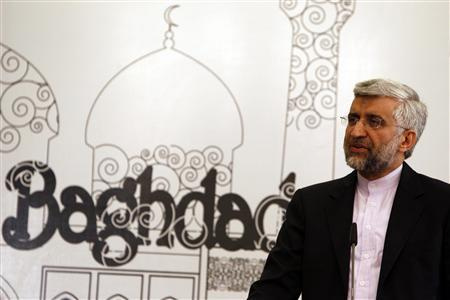What Will Happen in Moscow

- First, Western countries are willing to reach an agreement and compromise with Iran regarding the nuclear issue.
- Second, they basically do not intend to reach an agreement with Iran and are only using the nuclear issue to hurt Iran.
- Third, they would like to see Iran raise a white flag of surrender and unconditionally accept their demands.
I assume that the first presumption is the more probable one, and that the West is willing to reach an agreement with Iran. Now, if this presumption is true, then the question is raised whether the Iranian side also is willing to reach a compromise and agreement with the P5+1. My assumption is that Iran also wants to reach an agreement with the West.
Therefore, if both sides have this objective, then the next issue would be that Iran must naturally put aside some of its demands and give concessions to the P5+1 in exchange for some concessions from the West. The Western countries also have to retreat from some of their demands, and get some concessions from Iran in return. For the nature of negotiations means bargaining, and the giving and receiving of concessions.
Now it must be said that Iran’s first and most important demand is, rationally and reasonably, a continuation of its nuclear program, including uranium enrichment. This is the red line for the Islamic Republic. Now the Western countries may say that we cannot accept, under any circumstances, continuation of Iran’s enrichment program. Or, they may say that Iran can continue enrichment of uranium up to the 3% level, provided that Iran meets some of our demands. I believe that today the West’s position is that they are ready to accept 3% enrichment but in exchange they have some demands, one of which is to be certain about the peaceful nature of Iran’s nuclear program, meaning there should not be in any doubt regarding this issue.
Right now, from the West’s point of view, there exists mistrust about Iran’s programs, meaning that despite nuclear activities known to the West, Iran might be performing activities that the West is not aware of. I believe that this atmosphere must change, meaning the Western countries must be assured that Iran’s nuclear programs are exactly the same as announced and that there are no clandestine operations. I believe this objective can be reached. The IAEA must be able to have regular unannounced inspections of Iran’s nuclear program. It must also be able to do the same with regard to the nuclear programs of other countries.
This measure would provide certainty for the West that Iran, based on the statement of the Supreme Leader, does not intend to produce nuclear weapons. Hence, I believe that agreements can be reached with the West so that Iran could achieve its basic demands, which are the continuation of its nuclear activities and its 3% enrichment, and the West also, in pursuance of its major demands, can be certain of the peaceful nature of Iran’ nuclear programs.
I believe till today we have not been able to reach this point; meaning that up to this moment, Western countries have always been suspicious of Iran's nuclear activities. However, in my opinion, one can create such a trust for the West because I believe Iran is eager to reach an agreement and a compromise with the West. In the West too, the current US administration, the UK, France and Germany really want to reach an agreement and a compromise with Iran. The reason for Western suspicion towards the Iranian nuclear program is that Iran or some of its officials have not shown eagerness to reach a compromise with the P5+1, which means that they have not insisted on reaching a compromise with the West.
For example, the basic Ahmadinejad approach during previous years has been that we do whatever we like in Iran and deal with IAEA in whatever fashion we wish, and the Western countries do what they wish.
Of course, I think at least some Iranian officials do not share such a view and believe that Iran should manage its nuclear program in such a way as to not make the whole world against it and that Iran can continue with its nuclear program, even the enrichment, without paying a huge price such as that related to sanctions.
I believe that the view and approach, that of ‘when one can untie a knot by hand, why should teeth be used for the job’, has garnered support among many Iranian officials. When you can engage in confidence building with the West and reach a minimum level of trust with them, why we should act in a way to increase their suspicion and enmity towards us? We are paying a high price as a result of sanctions. Western countries have also paid a high price for applying sanctions against Iran. Those who have benefitted from sanctions include Russia, China, the UAE, Turkey and international middlemen.
Neither Iran nor the US and Europeans want sanctions to increase and continue because as a result of these sanctions Western companies have lost the Iranian market of 75 million people. Western companies have been absent from the important Iranian energy market of (oil, gas and petrochemical products). Therefore, the West, too, does not want sanctions to increase, just as they do not wish a military confrontation with Iran to occur.
In Iran, a new view has been created that when a nuclear program can be pursued with lower cost, why should we insist on increasing our costs by a harsh treatment of the West and by following a non- cooperative spirit with them? Therefore, the P5+1 should take the hand of compromise and friendship extended by Iran-- they should not reject this outstretched hand, and instead should trust it.

